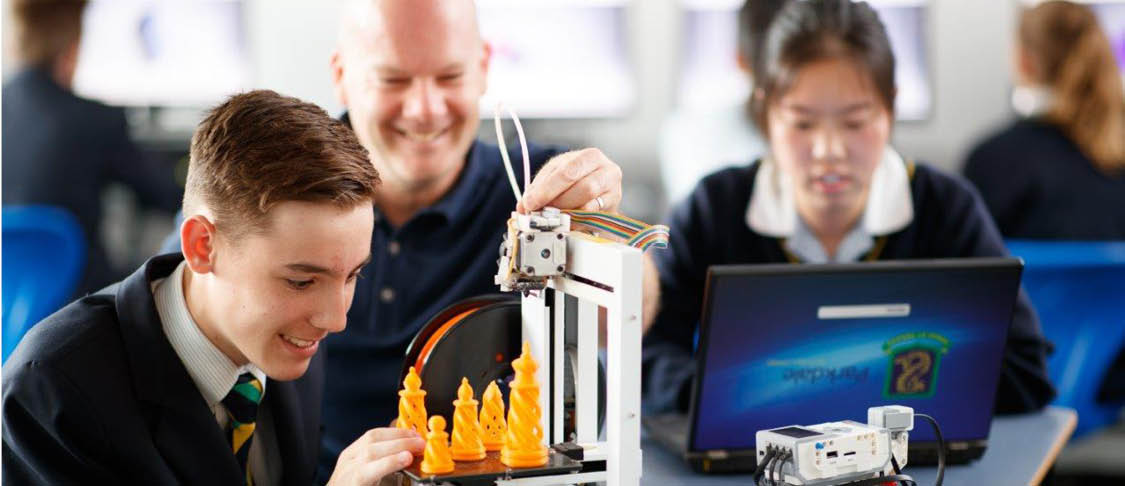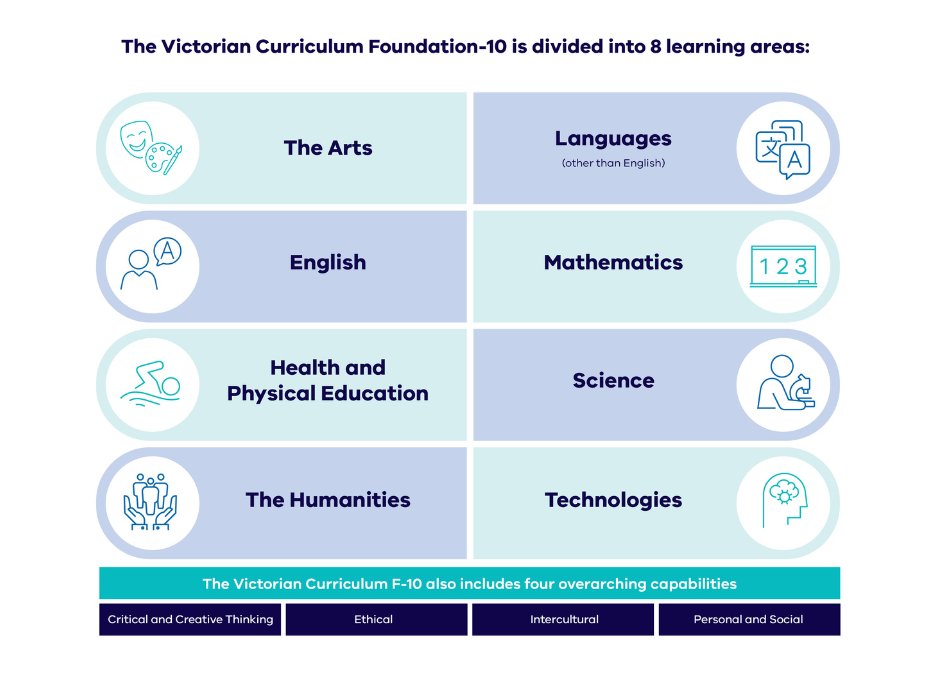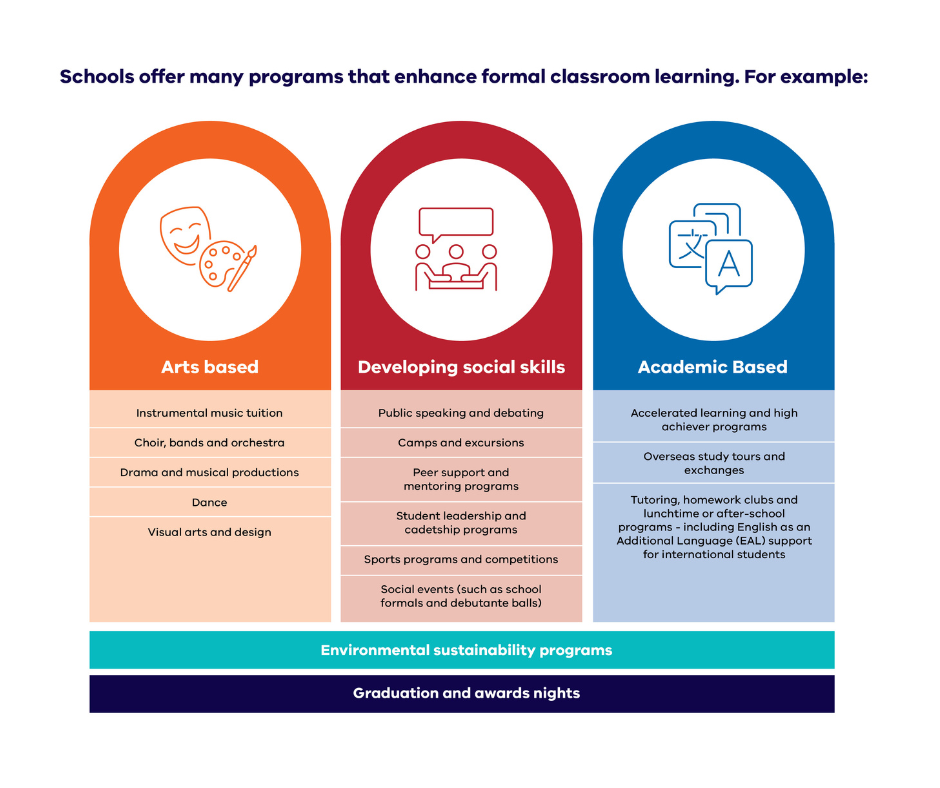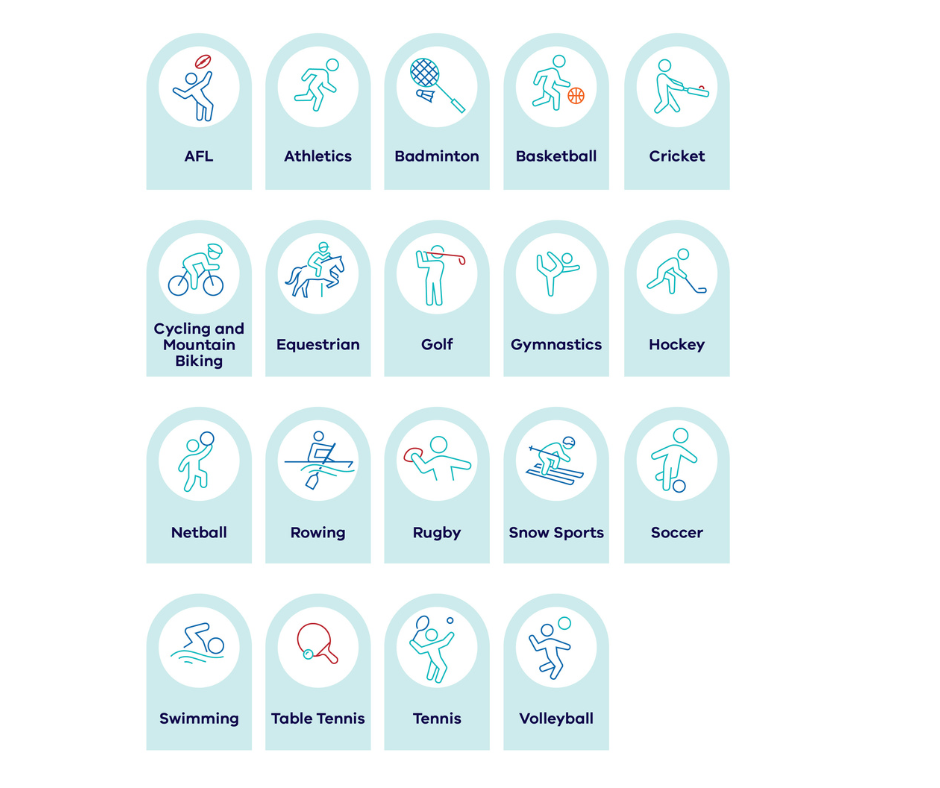Our well-designed school curriculum in Victoria, Australia is rich, diverse and flexible. This enables you to pursue your strengths and interests to achieve academic excellence.
Our school curriculum gives you many choices and not all subjects are compulsory.
 School qualifications
School qualifications
The Victorian Certificate of Education (VCE) is the official secondary school qualification in Victoria for Years 11 and 12. VCE allows entry to all Australian universities and a pathway to universities globally.
Build knowledge, gain skills and start the next phase of your life with a Victorian school qualification.
The Victorian school curriculum provides a strong foundation for future success
Our school curriculum sets you up for success and helps you to choose your direction after school.
This flexible and broad curriculum encourages you to:
- develop independent, creative and critical thinking
- increase your life skills
- think and reflect on your future
- face the future with confidence.
Our teachers apply the curriculum in the classroom in ways that suit many different learning styles.
Crucial years for decisions and choosing subjects - Years 10 to 12
In many ways, the most important years in our school curriculum are Years 10 to 12. It is the time to take responsibility and make decisions about your future and your career. That's why we offer you many choices but also guidance to help you choose your subjects carefully.
From international politics to specialist mathematics, from visual arts to psychology, from economics to environmental science – there really is something for everyone. The school you attend does not restrict you. Your choice can include subjects from the:
The only compulsory subject is one English subject in Years 11 and 12 (most international students choose English as an Additional Language). You choose the rest.
If you need help or advice, careers and course advisors and counsellors can guide you in the right direction!
Victorian Certificate of Education (VCE) subjects
There are over 90 VCE subjects across 9 Key Learning Areas:
- English
- Languages (other than English)
- Science
- Mathematics
- Technology
- The Arts
- Humanities
- Business Studies
- Health and Physical Education.
Choices include:
- 4 English subjects
- 5 mathematics subjects
- 5 science subjects
- 10 arts subjects including 3 music, 3 performing arts and 3 visual arts subjects
- 5 technology subjects
- 17 humanities subjects including 8 history and 3 politics subjects
- 5 business subjects
- 3 health and physical education subjects
- over 40 languages other than English.
The full list of VCE studies with details about each subject is available at the
Victorian Curriculum and Assessment Authority.
The
Victorian College of the Arts Secondary School has unique curriculum offerings in the areas of music and performing arts.
Recognition of previous study
You can
apply for a credit recognition which will recognise your previous study as a credit towards your VCE.
The Victorian Curriculum Foundation–10
The
Victorian Curriculum F–10 sets out what all Victorian students should learn during the first eleven years of their schooling. This incorporates the Australian Curriculum but reflects Victorian priorities and standards. The curriculum is the common set of knowledge and skills required by students for:
- lifelong learning
- social development
- active and informed citizenship.

Co-curricular and extra-curricular programs
 Sports offered vary between schools but can include:
Sports offered vary between schools but can include:

CRICOS Provider Name and Code: Department of Education, 00861K.
CRICOS Course Names and Codes: Primary (Prep to Year 6), 019047G; Secondary (7-12), 019048F; Victorian College of the Arts Secondary Course (7-12), 028651A.




